Advocates Welcome Down Syndrome Guidance for Adults
October 26th, 2020 by Global Down Syndrome Foundation
A Loving Tribute to DeOndra Dixon
October 24th, 2020 by Global Down Syndrome Foundation

GLOBAL’s 2020 virtual Be Beautiful Be Yourself Fashion Show ended with a loving tribute to GLOBAL Ambassador DeOndra Dixon and brought us all to tears. GLOBAL and DeOndra’s family have set up the “DeOndra Dixon Down Syndrome Research Fund” to focus on the often neglected population of African Americans with Down syndrome. Anna and John J. Sie are generously matching $100K for this important research. DeOndra’s legacy will power us on. ALWAYS LOVED NEVER FORGOTTEN.
With the heaviest of hearts and full of sorrow, we are beyond sad that our beloved Global Ambassador DeOndra Dixon has passed. She is no doubt a true angel looking down on us, just as she was always an angel on earth.
The Global Down Syndrome Foundation’s highest honor, the Quincy Jones Exceptional Advocacy Award, was inspired by DeOndra and she was its first recipient. Quincy Jones himself introduced us to DeOndra as one of the most articulate, irrepressible, magnetic people he had ever met. DeOndra was brought into this world in a loving family who treated her like any other family member. They gave her the gifts of complete acceptance, confidence, and knowledge. They empowered her to graduate with a regular diploma from high school and to take life by storm, which, if you knew DeOndra, she absolutely did. Her parents, Annette and George Dixon, brother Jamie Foxx, sister Deidra Dixon, nieces Anelise and Corinne, dear friend Kim, and large extended family are beyond consolable, and we ask that you help us respect their privacy during this difficult time.
For Global, we have lost our talented, intelligent, feisty, beautiful, kind, loving, caring, pure and giving heart, DeOndra Dixon. Our Down syndrome community has lost a beacon of hope, a true leader, and role model whose aim was to always help others. She was a bright light in this world of ours.
DeOndra was our anchor. Her excitement for our Be Beautiful Be Yourself Fashion Show each year was palpable, and she often posted about her “secret moves” that she was practicing (and she did keep them secret right up until her stage call).
Over the years our fashion show became a reunion for Global’s “extended Down syndrome family” where DeOndra and her family, Quincy Jones, John C. McGinley, Amanda Booth, Beverly Johnson, Kyra Phillips & John Roberts, Ronnie & Shamari DeVoe, Matt Dillon, The Salah Foundation, Peter Kudla, Jules Haimovitz, Tomago Collins, Jay Mills, the Gold/Rest/Karsh/Perry, Vollbracht/Winfield, Capuano, Rotella, Sikora, Levin, Fonfara-LaRose, and Snodgrass families, our families, our tribes would come together over a weekend and celebrate life and people with Down syndrome.
Our extended family loves DeOndra deeply and unreservedly for who she is. Global and DeOndra’s family cannot imagine our fashion show without her, and so through our heartbreak and tears, we were able to honor her memory at our Be Beautiful Be Yourself Fashion Show with a loving tribute video and announce the “DeOndra Dixon Down Syndrome Research Fund” set up in conjunction with DeOndra’s family. The fund will focus on research to address the disparity of lifespan for African Americans with Down syndrome and will be matched up to $100,000 by a generous donation from Anna and John J. Sie.
Everyone at the Global Down Syndrome Foundation is in complete shock and full of grief. Please join us in honoring her and share your fondest memories of our beautiful and brilliant DeOndra Dixon. DeOndra is already sorely missed, but she will never be forgotten.
Medical Care For Adults With Down Syndrome: Guidelines By Global Down Syndrome Foundation
October 23rd, 2020 by Global Down Syndrome Foundation
Medical Care For Adults With Down Syndrome: Guidelines By Global Down Syndrome Foundation
October 23rd, 2020 by Global Down Syndrome Foundation
How to Talk About Inclusion and Ability
October 23rd, 2020 by Global Down Syndrome Foundation
People with Down syndrome have 10 times the risk of death from Covid-19 as those without, study finds
October 23rd, 2020 by Global Down Syndrome Foundation
ON THE SCIENCE FRONTLINES: DOWN SYNDROME RESEARCH AT THE CRNIC INSTITUTE IS HELPING FIGHT AGAINST COVID-19
October 22nd, 2020 by Global Down Syndrome Foundation
From Down Syndrome WorldTM 2020 Issue 2 of 4
AMID A WORLD-WIDE PANDEMIC, THESE SCIENTISTS HAVE FOUND THEMSELVES IN A UNIQUE POSITION TO HELP, THANKS TO YEARS OF STUDYING THE EXCEPTIONAL BIOLOGY OF PEOPLE WITH DOWN SYNDROME.
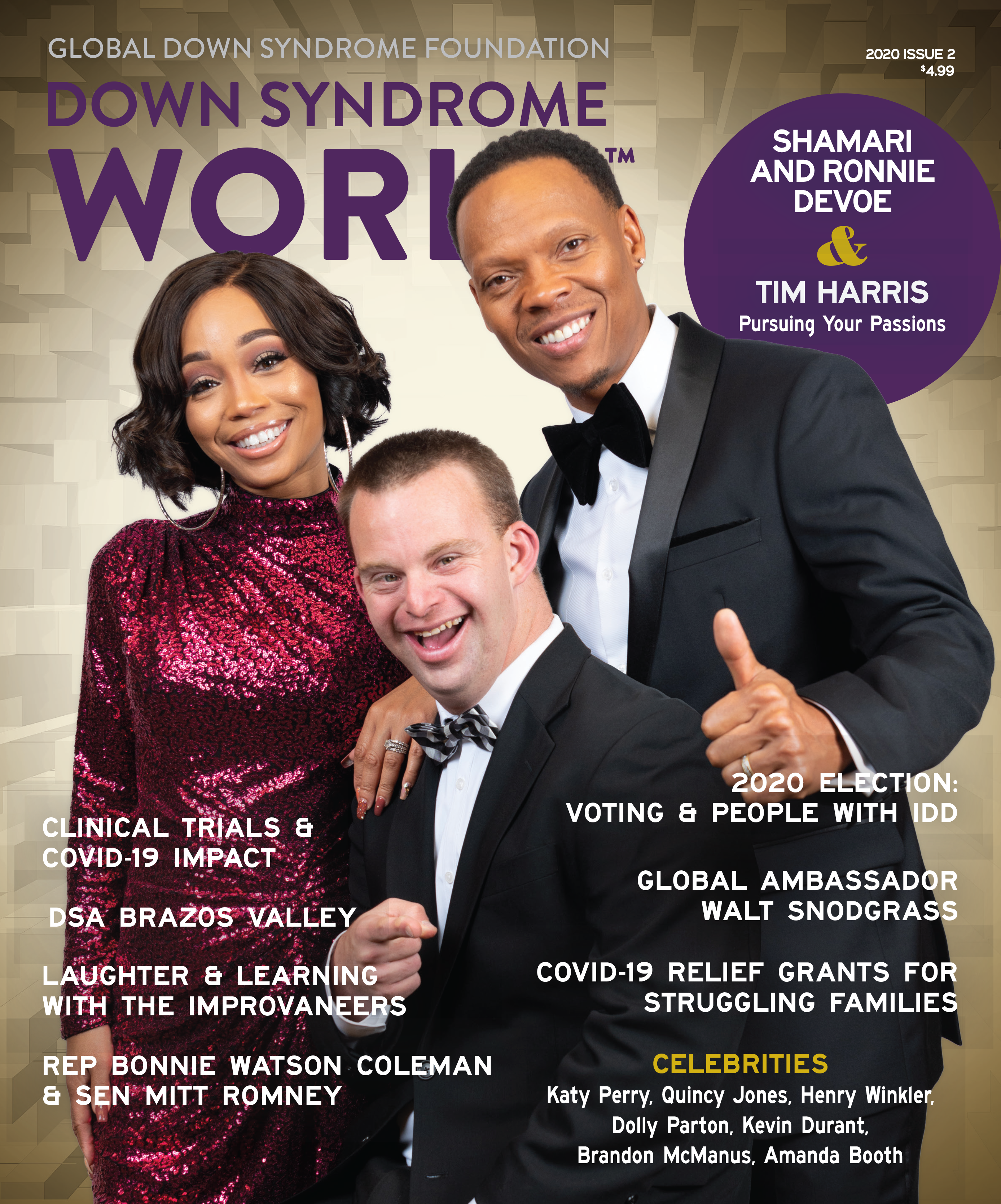
This article was published in the award-winning Down Syndrome World™ magazine. Become a member to read all the articles and get future issues delivered to your door!
CONTRIBUTING IN A MEANINGFUL WAY to the body of science and medical practice surrounding an unprecedented world-wide pandemic is not something most people ever get the opportunity to do. It certainly was not what Executive Director of the Linda Crnic Institute for Down Syndrome, Dr. Joaquín Espinosa, and his team of scientists were thinking about in early March 2020.
During this time, the University of Colorado Anschutz Medical Campus (CU) shut down all research operations, locking scientists out of their buildings and laboratories in response to and to prevent the spread of the novel coronavirus (COVID-19) pandemic. Thankfully, Dr. Espinosa and the Crnic Institute team had their valuable experiments and supplies already gathered and stored away safely. With numerous grants from the National Institutes of Health (NIH), the National Science Foundation, and others, the team had plenty of work that could be performed remotely – analyzing data, writing up results for scientific journals, and preparing new proposals for funding.
Their biggest worry was something they could not work on remotely – the delay of their NIH clinical trial grant to treat autoimmune diseases in people with Down syndrome. In 2016, shortly after launching the Crnic Institute Human Trisome ProjectTM (HTP), the Crnic Institute made one of the most important scientific discoveries – Down syndrome can and should be characterized as an immune system disorder.
In particular, they discovered that an immune system pathway called the “interferon pathway” was “lit up” in people with Down syndrome pretty much 24/7, versus in typical people where it is only turned on when they are fighting a virus or infection and then it turns off.
The constant taxation of the immune system in people with Down syndrome creates low intensity inflammation that over time probably contributes to the co-occurrence of various diseases, including dementia. The Crnic Institute discovery was even more consequential because there are FDA-approved drugs that turn down the interferon pathway in typical people. Crnic Institute scientists were about use one of these FDA-approved drugs, a JAK inhibitor called tofacitinib, in an unprecedented clinical trial for adults with Down syndrome when the pandemic forced lab closures around the world.
AN “AH HA” MOMENT
As serendipity would have it, two days into quarantine, the Crnic team was doing a quick review of the research literature on COVID-19. Their findings revealed something that was both shocking and yet made perfect sense – it appeared that hospitalized COVID-19 patients were displaying many of the same patterns of immune system dysregulation that the Crnic Institute team had spent years studying, analyzing, and annotating in people with Down syndrome.
In COVID-19, the body’s antiviral defense system, which utilizes the interferon pathway, is sent into overdrive, causing the release of high levels of inflammatory signaling molecules known as cytokines. In COVID-19 and other viral infections, this “cytokine storm” is associated with respiratory distress, heart damage, and higher mortality rates. Similarly, people with Down syndrome have higher-than-normal levels of interferon signaling and often display more of a mini cytokine storm, even without a viral infection. Crnic Institute scientists believe this could contribute to many of the hallmarks of and co-occurring medical conditions associated with Down syndrome and are working to understand those connections.
Within a week, Dr. Espinosa and the Crnic Institute were one of a handful of research teams allowed back, with COVID-19 safety measures, into their labs to work on COVID-19 treatments for the general populations and to understand the connection and possible affects and treatments on people with Down syndrome.
Today, Dr. Espinosa is the leader of an international consortium looking at JAK inhibitors to treat COVID-19. The treatment is one of several clinical trials that Dr. Anthony Fauci, Director of the National Institute of Allergy and Infectious Disease at the NIH, has been supporting in the United States. The international consortium includes labs from the United States, China, Italy, France, Spain, Argentina, Mexico, Canada, Germany, and Denmark.
COVID-19 COULD BE MORE SEVERE FOR PEOPLE WITH DOWN SYNDROME
In reviewing the COVID-19 literature, Crnic Institute scientists also realized that people with Down syndrome should probably be considered a “high-risk” group for COVID-19. “High risk” means a person who gets COVID-19 has a higher probability of experiencing more severe illness than a member of the general population without other risk factors. This idea rests on the basis that the strength of the cytokine storm in COVID-19 correlates with disease severity and outcomes, and that people with Down syndrome will be more likely to develop a stronger, more prolonged cytokine storm due to higher levels of baseline interferon signaling. Although the direct studies of COVID-19 in Down syndrome needed to prove or disprove this idea have not yet been performed, ample supporting evidence already exists in the context of other viruses and in our basic understanding of immunology in Down syndrome.
It is also important to consider that people with Down syndrome have increased susceptibility to bacterial pneumonia. Although seemingly unrelated, it has been well documented that pandemics of respiratory viral infections are followed by a surge in cases of bacterial pneumonia, and that a large portion of deaths are actually attributed to secondary bacterial infections. Children with Down syndrome have much higher rates of viral pneumonia and bacterial pneumonia, with the latter being a leading cause of mortality in adults. Taken together, these known phenomena suggest that a person with Down syndrome who contracts COVID-19 would have an increased risk of also acquiring bacterial pneumonia.
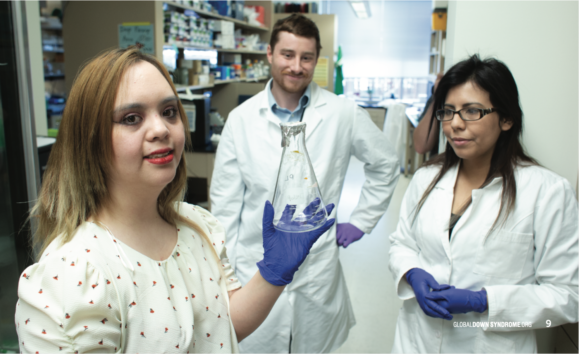
PUTTING TOGETHER ALL THE EVIDENCE:
#1 – People with Down syndrome have higher levels of interferon signaling.
#2 – Once infected, people with Down syndrome have an increased risk of experiencing a stronger cytokine storm and thus a more severe case of COVID-19.
#3 – Both during and after infection with SARS-CoV-2, people with Down syndrome will be more likely to also contract bacterial pneumonia.
It is important to note that these are hypotheses and predictions based on existing evidence outside of COVID-19 and should be taken into consideration with caution. The studies needed to fully understand COVID-19 in people with Down syndrome are still just starting to get underway. The good news is, there are people with Down syndrome, with and without underlying conditions, who are surviving COVID-19. We simply need more data and to better understand this virus before we can definitively come to conclusion.
HOW DOWN SYNDROME RESEARCH FROM THE CRNIC INSTITUTE IS BEING UTILIZED TO STUDY AND TREAT COVID-19
Since March, every member of Dr. Espinosa’s team, from the basic scientists to the clinical researchers, and even the administrators, have been utilizing their unique skills and knowledge gained while working in Down syndrome to rapidly advance COVID-19 research at CU.
For example, Crnic Institute scientists immediately started testing potential therapeutics for the COVID-19 cytokine storm in their mouse model of Down syndrome, nicknamed Dp16. They weren’t actually exposing the Dp16 mice to SARS-CoV-2; they didn’t need to. Instead, the scientists could activate the immune system and stimulate a cytokine storm much like what is seen in COVID-19, simply by using a molecule that tricks the immune system into sensing a virus when there isn’t one. Crnic scientists then treat the mice with JAK inhibitors targeting the interferon signaling pathway that is chronically activated in people with Down syndrome and that drives the cytokine storm in COVID-19. The data resulting from these experiments will be extremely valuable because it can be interpreted and utilized in two contexts: COVID-19 and Down syndrome.
FIGHTING COVID-19 TOGETHER
Who would have ever guessed that Down syndrome research and the discovery that interferon signaling is chronically activated in people with Down syndrome would one day so greatly impact the science and research behind a historic, global pandemic? This meaningful contribution to the body of science and medical practice surrounding COVID-19 is something the Down syndrome community should be proud to be part of. Together, this community of researchers, self-advocates, families, and supporters can clearly make positive scientific impacts not only for people with Down syndrome, but also for the entire world.
THE CRNIC INSTITUTE HUMAN TRISOME PROJECTTM IN ACTION AGAINST COVID-19
At the beginning of the quarantine, CU assembled a centralized team tasked with rapidly creating a biobank to collect blood and other biological samples from COVID-19 patients. These samples would then be administered to researchers with approved projects. This model essentially replicates one of the Crnic Institute’s flagship research initiatives, the Crnic Institute Human Trisome ProjectTM (HTP). The HTP is generating multiple layers of “omics” data (think big data from sequencing all of someone’s DNA and RNA and measuring all their proteins, metabolites, immune cells, and much more) on hundreds of people with and without Down syndrome in order to understand the hallmarks of and co-occurring medical conditions associated with Down syndrome. Having heard about the Crnic Institute’s HTP and Biobank, the CU COVID-19 team reached out to Crnic scientists to tap into their expertise. The Crnic team shared detailed protocols and helped advise the CU team during the development of the CU COVID-19 Biobank.
As part of a synergized endeavor with the COVID-19 Biobank, leading researchers at CU also partnered with Dr. Espinosa and the Crnic team to replicate the experimental platform from HTP and apply it to COVID-19. The parallel effort by CU to apply the HTP platform to COVID-19 has been aptly dubbed “The COVIDome Project,” and Crnic scientists are leading the ongoing data generation to advance COVID-19 research for better diagnostics and therapeutics.
The Crnic team is also partnering with a national COVID-19 collaborative group to specifically study COVID-19 in people with Down syndrome. As explained earlier in this article, so much is yet unknown about COVID-19 in Down syndrome and numerous studies are needed to understand its impacts. The team is working with top data scientists at CU to identify differences in risk factors, symptoms, clinical course, immunological parameters, response to various treatments, and outcomes and long-term effects of COVID-19 in people with Down syndrome. Alongside these efforts, the Crnic team is also studying individuals with Down syndrome who have recovered from a SARS-CoV-2 infection as part of the HTP, in order to assess changes induced by COVID-19 across all the layers of omics data. Together, Crnic scientists hope these efforts will advance our understanding of interferon signaling and the cytokine storm in COVID-19 and Down syndrome and
inform the development of customized preventative and therapeutic solutions.

Like this article? Join Global Down Syndrome Foundation’s Membership program today to receive 4 issues of the quarterly award-winning publication, plus access to 4 seasonal educational Webinar Series, and eligibility to apply for Global’s Employment and Educational Grants.
Register today at downsyndromeworld.org!
Medical Care of Adults With Down Syndrome: A Clinical Guideline
October 20th, 2020 by Global Down Syndrome Foundation
Global Down Syndrome Foundation Announces The 1st Evidence-Based Medical Care Guidelines For Adults With Down Syndrome
October 20th, 2020 by Global Down Syndrome Foundation
The Global Guideline is Published in the Print & Online Versions of JAMA,
Ensuring Clinicians Across the U.S. Have Access
Press Contacts:
Anca Call | acall@globaldownsyndrome.org | C: (720) 320-3832
Rejena Carmichael | rcarmichael@globaldownsyndrome.org | C: (240) 603-5494
October 20, 2020 Denver, CO – After four years of coordination, compilation, and rigorous assessment and writing, the Global Down Syndrome Foundation Medical Care Guidelines for Adults with Down Syndrome© (Global Guideline) is complete and available at no cost.
The authors include the clinical directors of eight of the largest adult Down syndrome medical centers in the country – Advocate Health Care in Chicago, University of Pittsburgh Medical Center, Kennedy Krieger Institute at Johns Hopkins School of Medicine, University of Kansas Medical Center, University of Arkansas for Medical Sciences, and Denver Health in conjunction with the Anschutz Medical Campus School of Medicine at University of Colorado.
The first-in-kind Global Guideline was peer reviewed, edited, and published in the Special Communication section of the print and online October 2020 issue of JAMA, the Journal of the American Medical Association.
“We are so pleased that the quality of our guideline rose to the occasion of being published in JAMA, and we are deeply grateful to our families and self-advocates for pushing us to work on this difficult project,” says Michelle Sie Whitten, President & CEO of the Global Down Syndrome Foundation (GLOBAL). “Now we can focus on collaborating with other Down syndrome and disability organizations as well as medical institutions to ensure clinicians are following our Global Guideline and measuring outcomes.”
The Global Guideline is for clinicians and addresses nine medical areas: Behavioral Health, Dementia, Diabetes, Cardiovascular Disease, Obesity, Atlantoaxial Instability, Osteoporosis, Thyroid, and Celiac Disease.
It is made up of 14 recommendations and 4 statements of good practice. Some of the recommendations align with existing guidelines for individuals without Down syndrome, and two are markedly different. There were several questions associated with the recommendations that had no published research evidence, and therefore were answered based on the clinical expertise of the authors.
“It’s clear that the lack of Down syndrome research funding over the last 20 years has prevented us from easily or quickly creating these guidelines,” says Bryn Gelaro, LSW, Director of Adult Initiatives & Special Projects at GLOBAL. “We were fortunate to have expert authors and volunteers who helped identify important research needs that will bolster and better define our future Global Guideline recommendations.”
Author Amy Tsou, MD, from ECRI, an independent nonprofit and Evidence-based Practice Center, with support from Gelaro, helped spearhead the research methodology, which included PICO (Population/Intervention Comparison/Outcome) questions, the GRADE (Grading of Recommendations, Assessment, Development, and Evaluation) methodology, and focus groups from various stakeholders informed the final draft.
“I participated in the task force of over 40 self-advocates and family members that provided GLOBAL with the directive they needed to focus on adult care guidelines – even if it would be difficult and take a lot of time,” says Karen Gaffney, a nationally renowned athlete, GLOBAL Q-Awardee and spokesperson. “It was great to be able to participate in the week-long focus group of self-advocates and family members and see it all come together.”
“From the beginning, GLOBAL has been leading the way, empowering people with Down syndrome with improved care and health outcomes,” says mom Darlene Beals. “The Global Guideline is an important new resource for my 24-year-old son Alan, and I believe if anyone can get to the bottom of health disparities for African Americans with Down syndrome, it’s GLOBAL.”
Alan echoes his mom’s sentiments, “[I want to know] when to take thyroid medicine, once a day? How to live a healthy life in my own apartment and keep the apartment clean?” Alan is also concerned about doctors knowing how to pay Medicaid insurance.
While the Global Guideline is free of charge to any stakeholder, the copyright of the JAMA publication and of GLOBAL’s long-form publication prohibits the reproduction of the Global Guideline on any website or digital platform. However, printing and downloading for personal and clinical use is highly encouraged.
GLOBAL has support from over 50 local, national, and international Down syndrome organizations and several generous sponsors. By the end of 2021, GLOBAL plans to translate and distribute this transformative new resource into several languages, and to update and expand the Global Guideline every 6 years.
A webinar and Q&A with the renowned and expert authors will be held on Wednesday, October 21, 2020. To learn more or sign up, please click here.
The Global Down Syndrome Foundation Medical Care Guidelines for Adults with Down Syndrome Workgroup includes (in alphabetical order of lead and supporting authors):
- Peter Bulova, MD: Associate Professor of Medicine, University of Pittsburgh Medical Center, Pittsburgh, Pennsylvania
- George Capone, MD: Director, Down Syndrome Clinic & Research Center, Kennedy Krieger Institute, Associate Professor of Pediatrics, Johns Hopkins School of Medicine, Baltimore, Maryland
- Brian Chicoine, MD: Medical Director, Advocate Medical Group Adult Down Syndrome Center, Park Ridge, Illinois
- Terry Odell Harville, MD, PhD, D(ABMLI) D(ABHI): Professor of Pathology and Laboratory Services, and Internal Medicine, Department of Pathology and Laboratory Services, and Department of Internal Medicine, Division of Hematology, University of Arkansas for Medical Sciences, Little Rock, Arkansas
- Barry A Martin, MD: Associate Professor of Clinical Practice, Division of General Internal Medicine, University of Colorado School of Medicine, Anschutz Medical Center, Aurora, Colorado
- Dennis McGuire, LCSW, PhD: Private Practice, Evanston, Illinois
- Kent D. McKelvey, MD: Associate Professor, Rockefeller Chair in Clinical Genetics, University of Arkansas for Medical Sciences, Little Rock, Arkansas
- Moya Peterson, PhD, APRN, FNP-BC: Clinical Professor, University of Kansas Medical Center, Schools of Nursing and Medicine, Kansas City, Kansas
- Amy Y Tsou, MD, MSc: Evidence-based Practice Center, ECRI Center for Clinical Excellence and Guidelines, Plymouth Meeting, Pennsylvania; Staff Neurologist, Division of Neurology, Michael J Crescenz Veterans Affairs Medical Center, Philadelphia, Pennsylvania
- Carl Tyler, MD, MSc: Director of Developmental Disabilities – Practice-Based Research Network, and Professor, Family Medicine and Community Health, Cleveland Clinic Lerner College of Medicine, Case Western Reserve University School of Medicine, Cleveland, Ohio
- Michelle Sie Whitten, MA: President & CEO, Global Down Syndrome Foundation, Denver, Colorado
- Bryn Gelaro, MA, LSW: Director of Adult Initiatives, Global Down Syndrome Foundation, Denver, Colorado
- Michael Wells, BS: Formerly Research Coordinator, Developmental Disabilities – Practice-Based Research Network, Cleveland, Ohio
About the Global Down Syndrome Foundation
The Global Down Syndrome Foundation (GLOBAL) is the largest non-profit in the U.S. working to save lives and dramatically improve health outcomes for people with Down syndrome. GLOBAL has donated more than $32 million to establish the first Down syndrome research institute supporting over 400 scientists and over 2,000 patients with Down syndrome from 28 states and 10 countries. Working closely with Congress and the National Institutes of Health, GLOBAL is the lead advocacy organization in the U.S. for Down syndrome research and care. GLOBAL has a membership of over 150 Down syndrome organizations worldwide, and is part of a network of Affiliates – the Crnic Institute for Down Syndrome, the Sie Center for Down Syndrome, and the University of Colorado Alzheimer’s and Cognition Center – all on the Anschutz Medical Campus.
GLOBAL’s widely-circulated medical publications include GLOBAL Medical Care Guidelines for Adults with Down Syndrome, Prenatal Testing and Information about Down Syndrome, and the award-winning magazine Down Syndrome WorldTM. GLOBAL organizes the Be Beautiful Be Yourself Fashion Show, the largest Down syndrome fundraiser in the world. Visit globaldownsyndrome.org and follow us on social media (Facebook, Twitter @GDSFoundation, Instagram @globaldownsyndrome).
October 2020 Newsletter
October 17th, 2020 by Global Down Syndrome Foundation
A Loving Tribute to DeOndra, The First Global Guideline!, Special Performances at GLOBAL’s Fashion Show and more exciting news!


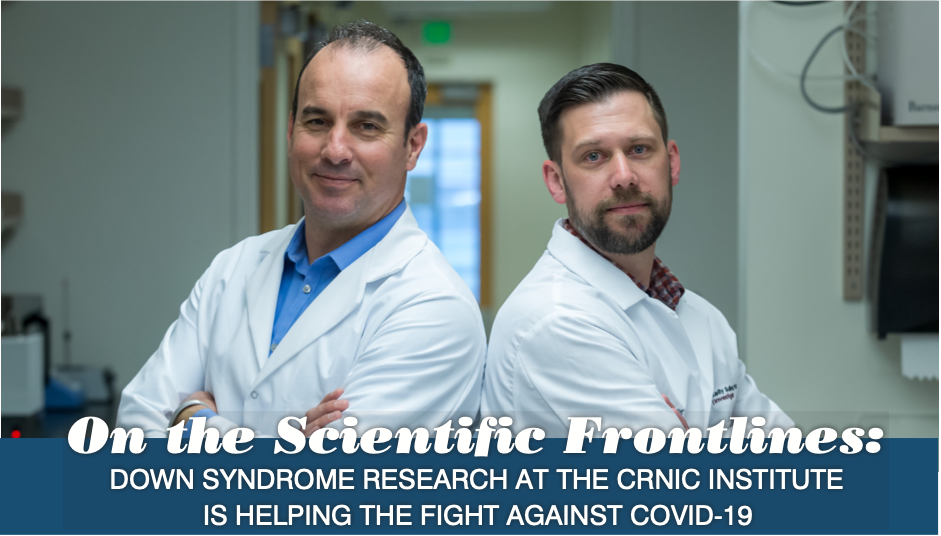
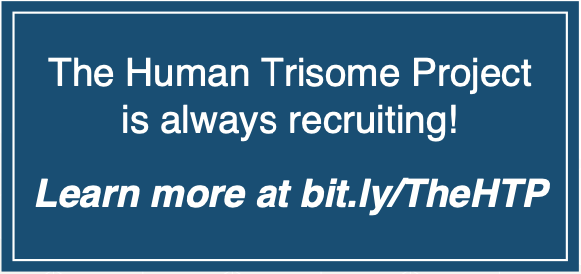

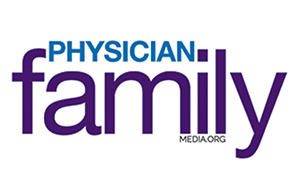

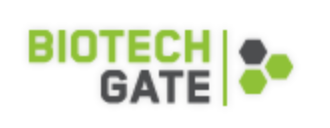





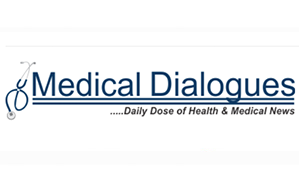

 Experience our inspirational and groundbreaking videos and photos. Our children and self-advocates are beautiful AND brilliant!
Experience our inspirational and groundbreaking videos and photos. Our children and self-advocates are beautiful AND brilliant! Make sure your local Representatives are on the Congressional Down Syndrome Task Force.
Make sure your local Representatives are on the Congressional Down Syndrome Task Force.